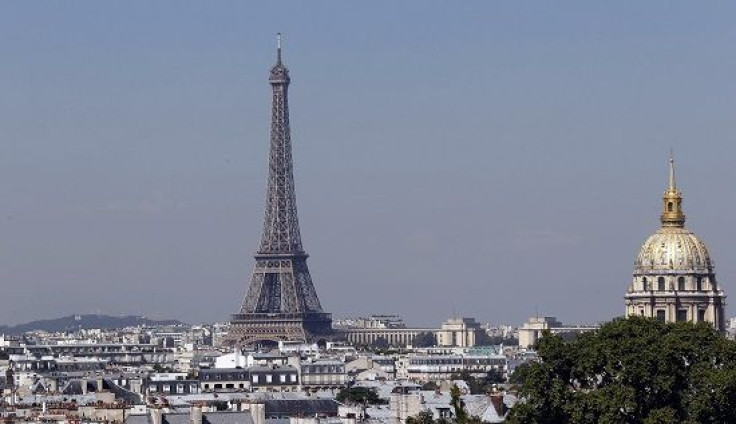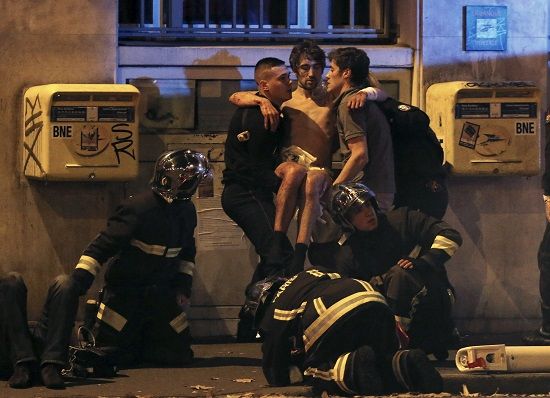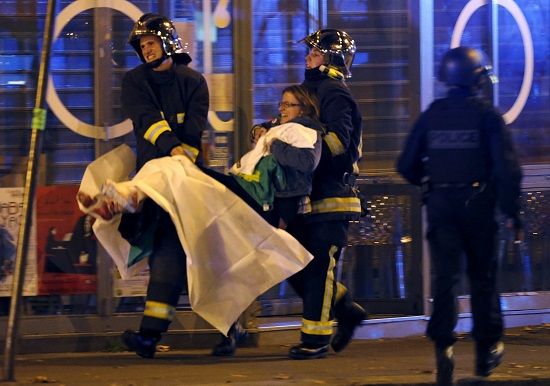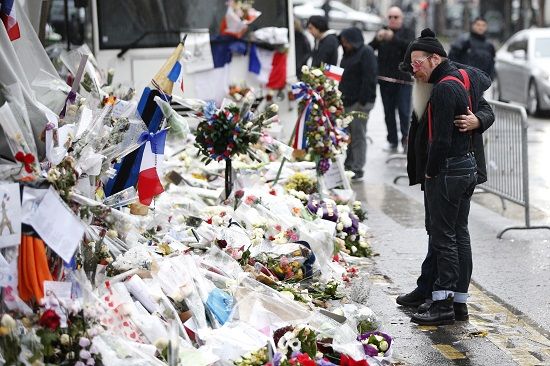Paris Terror Attack Pictures: A Look Back At The Victims And Violence Of Nov. 13, 2015 [PHOTOS]

It has been one year since the Paris attacks that claimed the lives of 130 people and injured many more. As the people in Paris attempt to recover and continue to mourn the victims, the date is a reminder of great loss and sorrow.
The violent events began to unfold on Nov. 13, 2015. The first attack was an explosion that occurred at 9:20 p.m. outside of a sports stadium called Stade de France. France was playing Germany in a soccer match and the president of France Francois Hollande was in attendance. Two explosions then occurred 10 minutes later outside of the stadium and a little more than twenty minutes later a third explosion went off. Four people were killed as a result of the blasts including one man who was passing by and three suicide bombers.
Gunmen also killed and injured people with assault rifles starting at an intersection, before moving to restaurants, bars and a café where they fired on customers and those in the vicinity.
Paris Attack Vid: Moment ISIS Suicide Bomber Blows Himself Up, Others escape w/ Min Injurieshttps://t.co/zC95Gd5ojc pic.twitter.com/cPKm0YeZFJ
— Kathy STANDS (@ZuiverCor) April 26, 2016
Three assailants also entered the Bataclan concert hall where they fired on an unsuspecting crowd attending an Eagles of Death Metal concert. Many concertgoers were injured and 89 people died.
Soon after the attacks, the French president declared a state of emergency and the following morning ISIS claimed responsibility for the attacks, calling them a “miracle.”
#Islamic,#Arab and International condemnation for #Nice_attackhttps://t.co/AdrjA3RpFH#ParisAttack#BaghdadAttack pic.twitter.com/wlfxyvQdU9
— Alghadeer English (@alghadeertv_eng) July 15, 2016
Five days following the violence, the authorities stormed an apartment building. After an intense standoff that included the exchange of bullets and the detonation of explosives, three bodies were recovered: Abdelhamid Abaaoud, believed to be the mastermind behind the attacks, a woman named Hasna Ait Boulahcen who is said to be a female relative, and a third man whose body was not identified but is believed to have been killed by a suicide device.
There has been progress since the raid in rounding up the people behind the attacks. Authorities believe they have identified the man who organized terror attacks in Paris and Brussels, BBC reported Tuesday. Belgian-Moroccan jihadist Oussama Ahmad Atar is said to be the man known as Abou Ahmad. Intelligence teams have been searching for Ahmad, who they believe recruited militants to carry out the acts of violence and was a coordinator for Paris the attacks.








© Copyright IBTimes 2024. All rights reserved.












